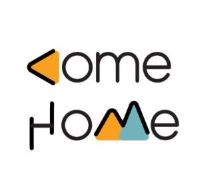ComeHome

Come Home is an EU funded project under the Citizens, Equality, Rights and Values Programme (CERV)
Come Home aims to promote equality with a focus on access to housing in Turin (Italy), Thessaloniki (Greece) and Malta. The objective is to understand the multi-faceted nature of housing discrimination experienced by persons with a migratory background, the motivations behind it and the stakeholders involved, in order to offer new solutions, incentives and mediation towards inclusive housing.
The project aims to promote equality in cities by understanding and fighting against racism, xenophobia and discrimination in access to housing, in line with theme 1 of the call: “Fighting against intolerance, racism, xenophobia, discrimination, hate speech and hate crimes”. It builds on the 2020 EU Action Plan Against Racisms that reaffirmed that “Individuals experiencing racial discrimination are at a higher risk of poor housing conditions and residential segregation” and that “discrimination on the housing market reinforces segregation, with a knock-on effect in terms of education or employment opportunities and, in the case of families with children, significant detrimental impact on children’s development”. Indeed, adequate housing supports social cohesion, job integration and education and prevents poverty and radicalisation, as emphasised by Principle 19 of the European Pillar of Social Rights on ‘Housing and assistance for the homeless', that covers access to social housing, protection to the homeless to promote their social inclusion. However, according to a survey from the EU Agency for Fundamental Rights, 23% of those reporting discrimination on the grounds of ethnic origin in the EU, indicated housing as an area for discrimination, the main triggers being names (44%), followed by skin colour or physical appearance (40%), and citizenship (22%). Hence, the project’s objective is to understand the multi-faceted nature of housing discrimination experienced by persons with a migratory background, the motivations behind it and the stakeholders involved, in order to offer new solutions, incentives and mediation towards inclusive housing. To do so, housing discrimination will be explored through intersectional lenses. In the case of persons with a migratory background and minorities, multiple discrimination happens at different possible intersections, such as: sex and age; or religion, sex and ethnicity - and these grounds interact in such a way that they are inextricable.
The project combines 2 key elements identified in the EU Action Plan against racism to tackle discrimination across society:
- the collection of disaggregated data for a better understanding of intersectional discrimination patterns in access to housing, to inform policies and future actions
- the field of housing, as a testing ground for the co-development and prototyping of tools (awareness raising tools, mediation tools,) to dismantle discrimination patterns and to promote inclusive, replicable and sustainable practices in access to housing.
The consortium includes 5 organisations from Italy, Greece and Malta with experience in working in the field of the social integration of refugees and migrants and with strong connections to local communities where not only is access to housing hampered by the structural features of their private and public markets, but also by the direct and indirect discrimination of potential migrant tenants.